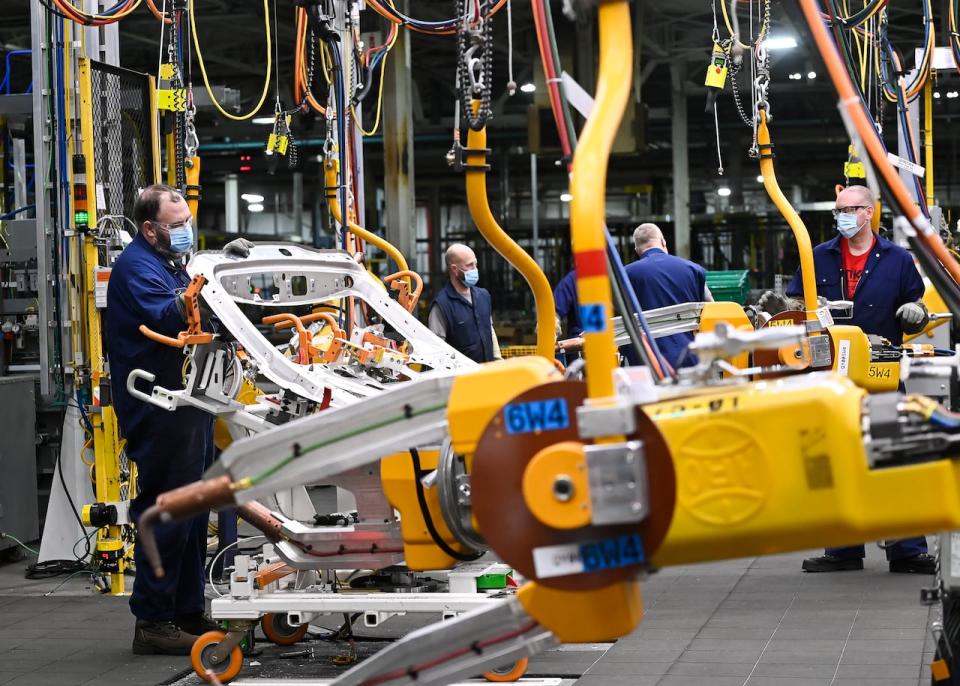More trucks rolling out of Alberta dealerships as supply-chain issues ease

Trucks are rolling out of Alberta dealerships in greater numbers these days.
An ATB analysis of Statistics Canada data shows vehicle sales were up 6.8 per cent in June, compared to the same month last year.
It's not just a seasonal blip, either. In the first half of the year, the number of vehicles sold was up 9.4 per cent compared to the same period in 2022, the report said, a turnaround driven largely by an easing of supply chain issues.
It's a turnaround Brent Walker has experienced firsthand at his Calgary dealership.
"Last year, I always said we could hold a street hockey tournament on our lot because there was literally nothing on the lot," said Walker, managing partner at Marlborough Ford.
"Now, you look full, you look like an operational business, just having inventory everywhere."
Pent-up demand has also boosted vehicle sales, said ATB's Chief Economist Mark Parsons. Another factor is the province's recent population growth — after all, he said, most people who are moving to Alberta need something to drive once they get here.
Still, the number of vehicle sales has room to grow, he said.
Taking a look at the number of vehicles sold in June throughout the past decade, Statistics Canada data shows the 2023 total is still below pre-pandemic numbers, and well below a high seen in 2014.
Some of that can be attributed to changes in the oil and gas industry, said Parsons. While energy companies continue to post historic profits, they aren't spending as they used to on capital expenditures like fleet vehicles, he said.
"[Fleet vehicles were] a major driver of truck sales back when the oil patch was investing more," he said. "Of course, production has continued to rise, but we have lower levels of capital investment than we did back in 2014."
Trucks over cars
The uptick in vehicle sales this year was driven by the sale of trucks, the report said, which were up 11.1 per cent. Passenger car sales were down 5.5 per cent.
Part of that is because "truck" is an expansive category that also includes minivans and SUVs, which have become much more common in recent years. As an example, Gerald Wood, president of the Motor Dealers' Association of Alberta, pointed to Ford, which announced in 2018 it would stop making all passenger cars except the Mustang.

GM workers use human assistance automation on vehicle doors at the General Motors assembly plant during the COVID-19 pandemic in Oshawa, Ont., on Friday, March 19, 2021. (Nathan Denette/The Canadian Press)
Wood also noted that Alberta consumers have always been drawn to trucks, and that it's not surprising to see growth driven by that category.
"Historical [truck] sales have been north of 80 to 85 per cent … for quite some time now," said Wood. "It drives the bus from a sales perspective."
Going forward, Parsons expects pent-up demand and population growth will continue to drive vehicle sales, though he said this could change as high interest rates cause consumer spending to level off.
Wood said he, too, is concerned about how interest rate pressures will affect the market.
"A vehicle for most people is the second most expensive thing that they'll buy after their house, so those economic changes are very important," he said.


